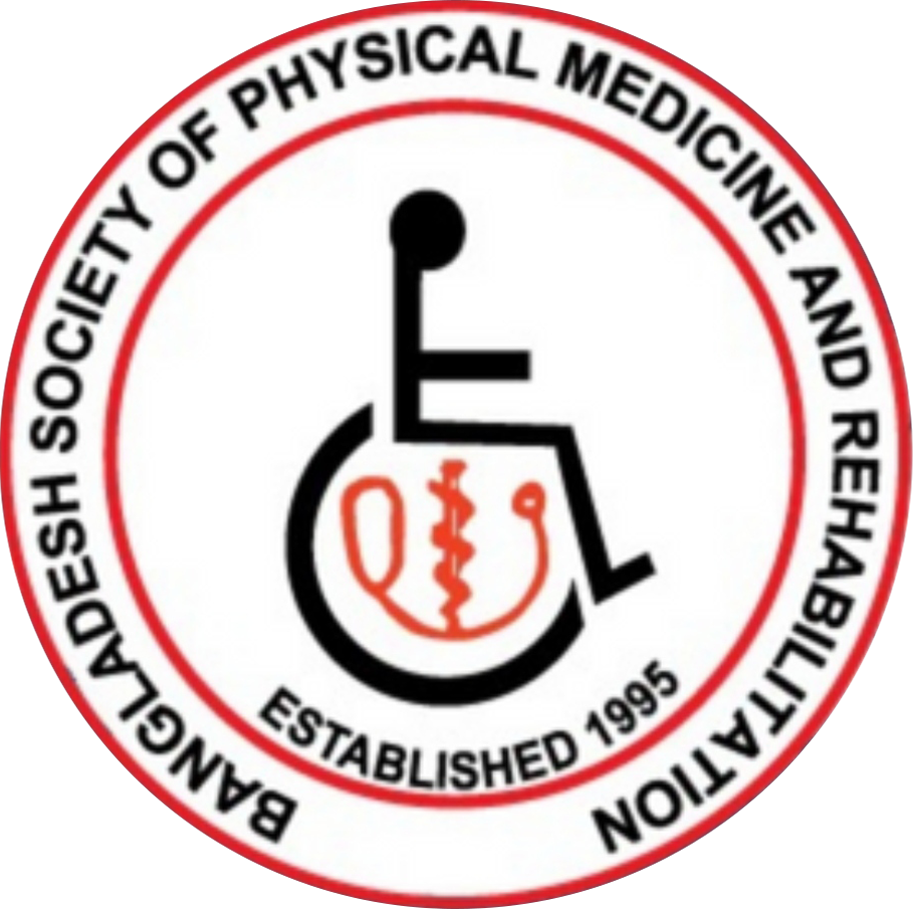Published Researches
Explore our collection of verified and published researches.

Dr. Md. Israt Hasan
Assistant Professor
Translation, cross-cultural adaptation and validation of English start back screening tool into Bangla for patients with low back pain
This study was intended to translate and culturally adapt the STarT back screening tool to produce an equivalent Bangla version. Total 58 patients with low back pain completed the newly developed Bangla version of STarT back screening tool and Bangla version of Ronald Morris Disability Questionnaire seven days apart. Reliability was assessed by internal consistency (Chronbach’s alpha for overall score 0.81 and for spychosocial subscale was 0.76) and test-retest reliability (intraclass correlation coefficient for overall score was 0.78 and for spychosocial subscale was 0.71). Reliability of Bangla version of STarT back screening tool was very good. Pearson’s correlation coefficient was carried out on the Bangla version of STarT back screening tool and Bangla version of RMDQ to assess construct validity (overall score was 0.88 and spychosocial subscale score was 0.83) which indicate a strong correlation between them. This study shows that the Bangla version of STarT back screening tool is a reliable, valid and culturally adapted responsive screening tool for the patients with low back pain.
View Details
Dr. Md. Israt Hasan
Assistant Professor
Reliability and validity of the Bangla version of the knee injury and osteoarthritis outcome score
Background: Patient self-assessed outcome scores for musculoskeletal conditions are limited in Bangladesh, especially for knee osteoarthritis. Therefore, a reliable outcome measure like the widely used knee injury and osteoarthritis outcome score (KOOS) for Bangladeshi population is necessary. The aim was to assess the validity and reliability of the Bangla version of KOOS. Methods: Following Beaton et al. forward-backwards method, an expert committee translated and adapted the original English version of KOOS with slight modifications for the Bangladeshi Bangla-speaking population. The psychometric testing assessed the questionnaire's reliability using internal consistency (Cronbach’s alpha) and test-retest reliability (Intraclass correlation coefficients). The questionnaire was compared to validated Bangla versions of the Short-Form 36 health survey (SF-36) and the Western Ontario and McMaster Universities Arthritis Index (WOMAC) to establish construct validity. Results: This study involved 150 patients with knee osteoarthritis. Bangla KOOS was found to have good internal consistency (0.77-0.88) and high test-retest reliability (0.86-0.99). Construct validity was established by comparing Bangla KOOS with the WOMAC and SF-36. The Bangla KOOS sub-scores showed negative correlations with WOMAC domains (ρ = −0.41 to −0.93) and positive correlations with SF-36 domains (ρ = 0.26 to 0.68). Conclusions: Findings showed that the Bangla KOOS is a reliable and valid measure for evaluating outcomes in Bangladeshi patients with knee osteoarthritis. It is a dependable and valid outcome measure tailored to the local language
View Details